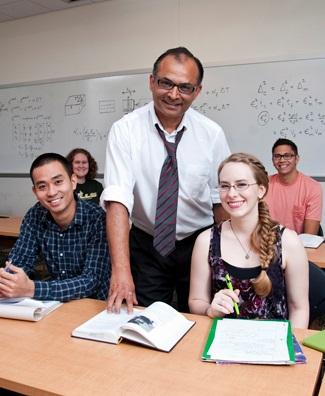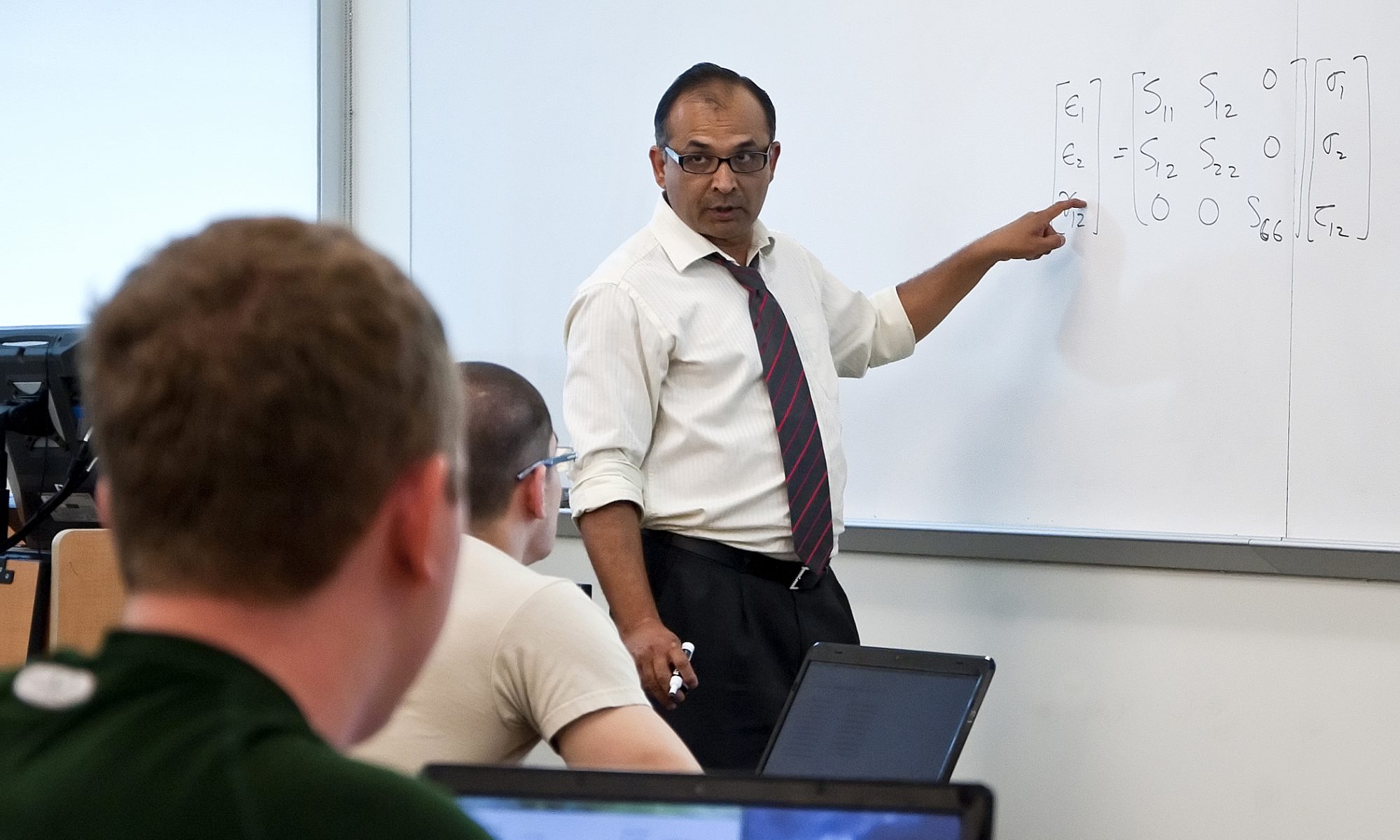In the December 12, 2003 issue of Chronicle of Higher Education, the question What Makes a Teacher Great? was asked of the 2003 CASE U.S. Professor of the Year winners. Although I reluctantly agreed with their view that it is hard to categorically answer such a question, I believe that there are some necessary traits of great teachers ― being organized, understanding the importance of the first day of class, using teaching tools effectively, being compassionate, giving rapid and relevant feedback, asking questions, and having high expectations. In recent years, I have been regularly teaching three courses including Computational Methods, Programming Concepts for Mechanical Engineers, and Laminated Composite Materials. My ongoing quest for improving pedagogy is based on evidence-based research, and as an example for a course in Computational Methods include flipping the classroom where the location of transmission and assimilation of the course gets reversed, improving the pre-class learning and pre-requisite knowledge through adaptive learning platform lessons so that students of all abilities can reach a reasonable competency level, experiencing numerical methods via a real-life problem-centered approach to challenge linear thinking, foster problem-solving skills of ill-defined problems, improve self-efficacy, and develop critical thinking skills, evaluating data collected via in-class experiments that are low-cost, low-space, and low-setup time to make connections between experimental data and analysis,using clicker quizzes that assess conceptual knowledge and create an inclusive basis for peer-to-peer and instructor discussion (many myths have been busted through this process), having conceptual and procedural questions in the in-class assignments to develop competency and confidence in both,assigning online homework quizzes that are algorithmic and repeatable, giving immediate feedback, and creating effective and efficient time-on-task opportunities, making course resources available openly and in different forms to facilitate flexible knowledge transfer,using problem sets based on Bloom’s taxonomy so that students gain knowledge as well as assimilation at the highest levels,having online study hall discussions of assigned problems via tools such as Piazza to create more active engagement, giving group projects to develop teamwork and communication skills but limited in number as our students in mid-tier universities have many other obligations outside of the classroom and that individual work is critical for students to “learn about how they learn”,assigning projects where students are asked to solve problems that are open-ended, realistic, and ill-defined, and where for some projects, no data is given ― some of it has to be assumed while other data have to be found from other sources.
 I believe that the classroom is not just an avenue for learning but also for meaningful social interaction. Treating students with respect and creating a vibrant atmosphere in the classroom is essential. The informal contact during office hours, in hallways, before class starts (I get to the classroom 15 minutes before starting time), immediately after class (I am willing to meet them outside the classroom), and at the student organization meetings is critical in building their interpersonal skills and in enhancing the human dimension to the faculty-student interaction. The latter is personally important to me, when in engineering, unlike other fields of study, faculty-student interactions “are less likely to be perceived as positive”, and “seniors are less satisfied with faculty and TAs than first-years are, although seniors interact with faculty and TAs more”.
I believe that the classroom is not just an avenue for learning but also for meaningful social interaction. Treating students with respect and creating a vibrant atmosphere in the classroom is essential. The informal contact during office hours, in hallways, before class starts (I get to the classroom 15 minutes before starting time), immediately after class (I am willing to meet them outside the classroom), and at the student organization meetings is critical in building their interpersonal skills and in enhancing the human dimension to the faculty-student interaction. The latter is personally important to me, when in engineering, unlike other fields of study, faculty-student interactions “are less likely to be perceived as positive”, and “seniors are less satisfied with faculty and TAs than first-years are, although seniors interact with faculty and TAs more”.
Time and again, I find extremists hijacking the debate on how a college course should be taught. Articles even in the mainstream media abound on traditional lecturing vs. overdosing on active learning. On top of that, we have the cellphone/laptop ban in the classroom debate as well. In a world where only polarized views get attention, we can ignore such debates, and meet in the middle. This middle road is not a compromise in civility or for pleasing everyone but is based on the evidence-based Universal Design Learning (UDL) principles which are naturally inclusive of our diverse student body. These principles include 1) multiple platform (videos, simulations, textbook, etc.) resources, and an example of that is the open courseware of Numerical Methods for which I am the lead developer, 2) multiple means of expression for students ― I use various types of assessments, the student can opt for weights of these assessments within reason, and choose the form of summative assessment (choice of final examination or project), 3)multiple forms of engagement ― I use personal response systems followed by peer-to-peer discussions, in-class experiments, and individual as well as group projects.
Following these three major principles of UDL not only makes learners masters of the content but of the learning process as well.
